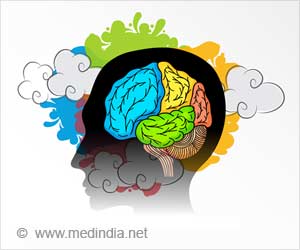US researchers say the synchronous neural interactions test, an imaging technique, can help detect post-traumatic stress disorder (PTSD). At the moment there is no biomarker for the debilitating condition.
In their paper published in the Journal of Neural Engineering, they say, “Here we show that the synchronous neural interactions (SNI) test which assesses the functional interactions among neural populations derived from magnetoencephalographic (MEG) recordings can successfully differentiate PTSD patients from healthy control subjects. Externally cross-validated, bootstrap-based analyses yielded >90% overall accuracy of classification. In addition, all but one of 18 patients who were not receiving medications for their disease were correctly classified. Altogether, these findings document robust differences in brain function between the PTSD and control groups that can be used for differential diagnosis and which possess the potential for assessing and monitoring disease progression and effects of therapy.”The subjects were asked simply to stare at a dot for up to a minute while the magnetic signals were collected - a measure of the brain "at rest".
The SNI test measures the tiny magnetic fluctuations that occur as groups of neurons fire in synchrony, even when subjects are not thinking of anything.
These "synchronous neural interactions" have already been shown to distinguish signals from subjects with a range of disorders including Alzheimer's.
The brain's signals are effectively a symphony of electrical impulses, which in turn drive tiny magnetic fields.
Researchers have measured and mapped these fields, in a pursuit known as magnetoencephalography, since the late 1960s. It has already been used to diagnose tinnitus, and can even predict when people will make mistakes.
Advertisement
Professor Georgopoulos and his colleagues have now used the approach to assess its accuracy in diagnosing post-traumatic stress disorder (PTSD).
Advertisement
Rajendra Morey of Duke University, a researcher into the neurological basis of PTSD and other disorders, seemed to think SNI was a step forward, but yet others feel it is not diagnosis that is the problem in tackling PTSD, but the stigma associated with it, discouraging people from volunteering for treatment.
Source-Medindia
GPL















